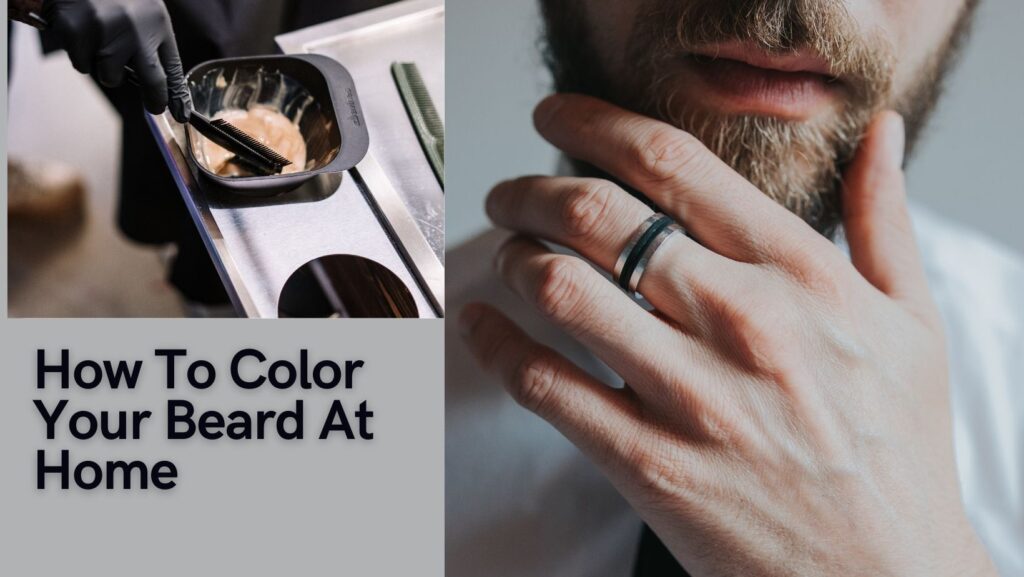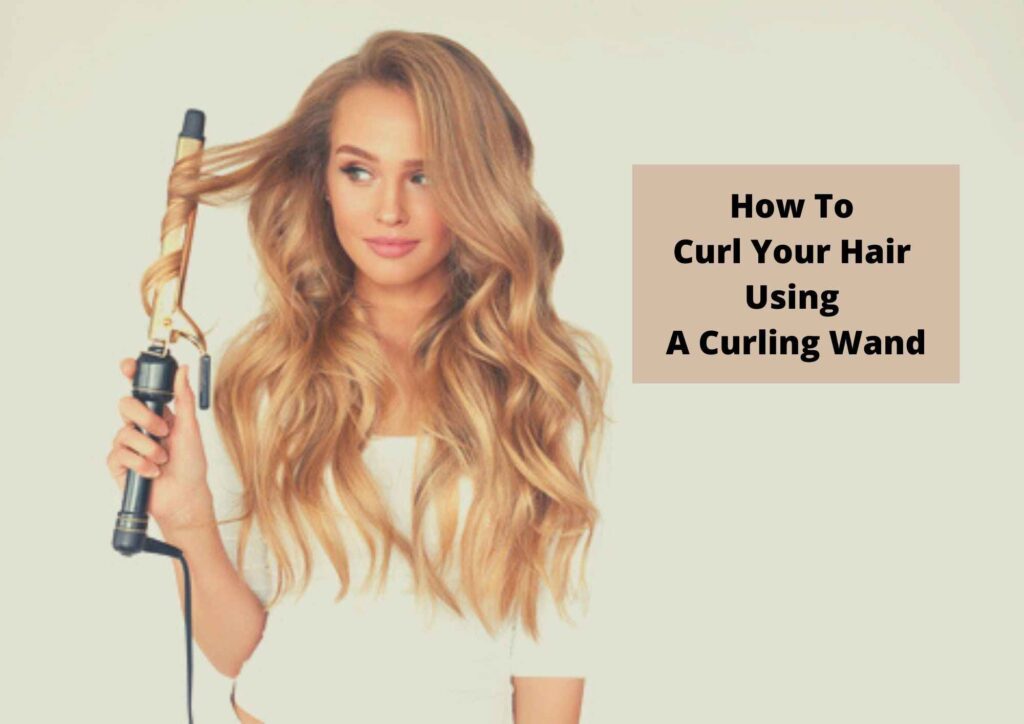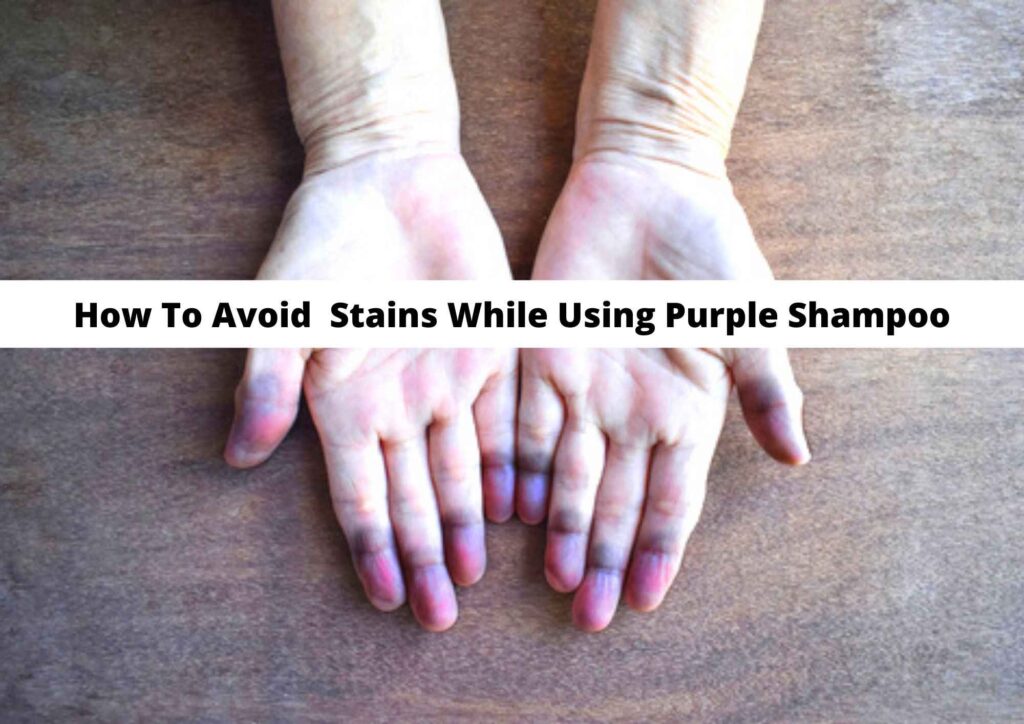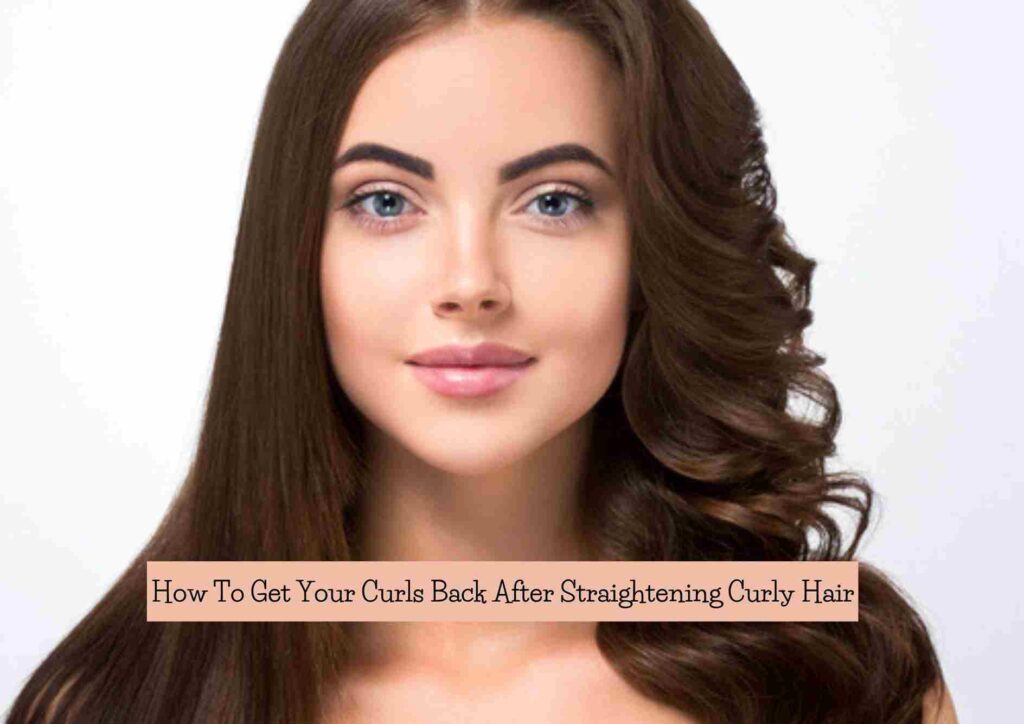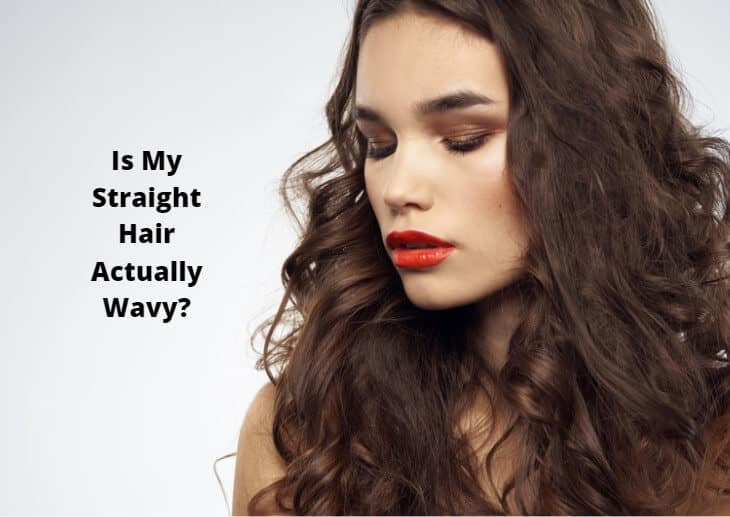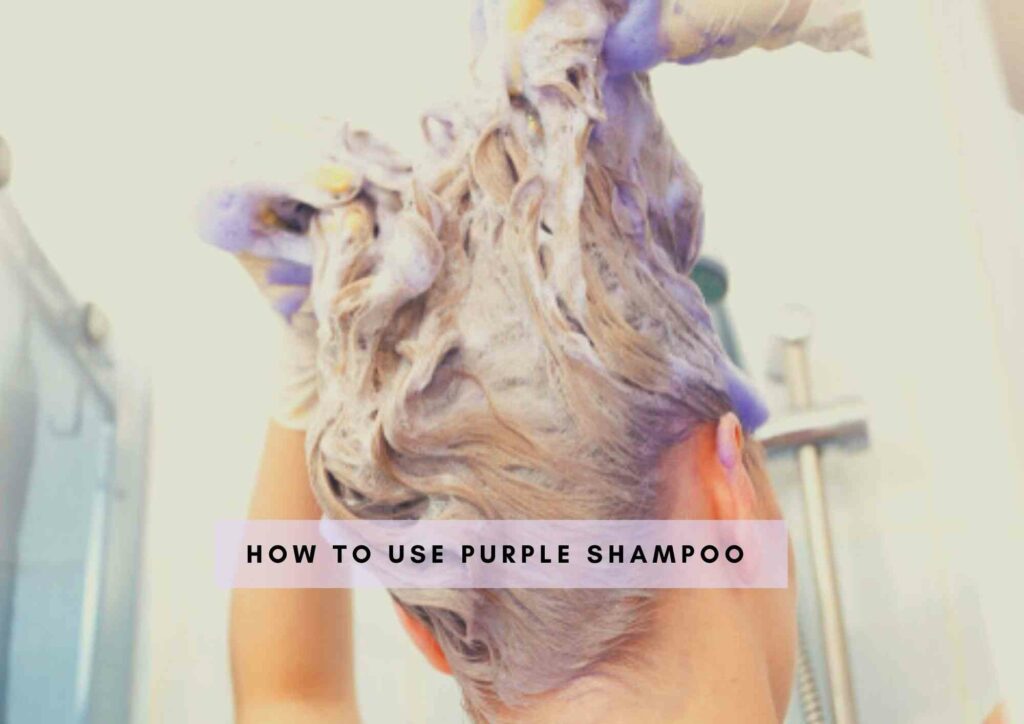Is Lake Water Bad For Your Hair? Is lake water causing hair problems? Learn the impact of lake water on your hair and effective tips for protection in our informative article.
While these bodies of water offer respite from the scorching heat, they also present a question that swimmers, divers, and water enthusiasts often ponder: Is lake water bad for your hair? In this article, I will dive into the various aspects of this question, exploring the potential effects of lake water on your hair and what you can do to keep your locks looking their best.
Is Lake Water Bad For Your Hair
Lake water can be potentially bad for your hair due to its mineral content, which can cause dryness, discoloration, and increased tangles. However, taking precautions like wetting your hair before swimming, using protective products, and rinsing thoroughly afterward can help minimize these negative effects.
How To Prevent Lake Water From Damaging Hair
While lake water can be refreshing and fun to swim in, it’s essential to take steps to protect your hair from potential damage. Here are some tips to help prevent lake water from wreaking havoc on your locks:
1. Wet Your Hair Before Taking the Plunge
Before entering the lake, wet your hair with fresh water from a shower or hose. When your hair is already saturated with clean water, it absorbs less lake water, reducing the potential damage caused by the minerals and pollutants present in lake water.
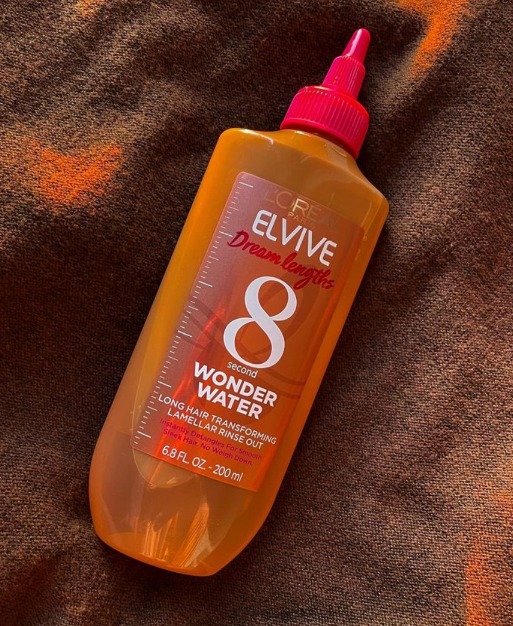
2. Apply a Protective Leave-In Conditioner
Consider applying a leave-in conditioner or hair oil before swimming. These products create a barrier that helps seal your hair’s cuticles and shield it from harmful lake water elements. Additionally, they can keep your hair moisturized and prevent excessive dryness.
3. Wear a Swim Cap or Protective Style
If you’re an avid swimmer or plan to spend a considerable amount of time in the lake, wearing a swim cap can be a great option. It offers complete coverage and protection for your hair. Alternatively, you can braid or twist your hair into a protective style to minimize contact with the water.
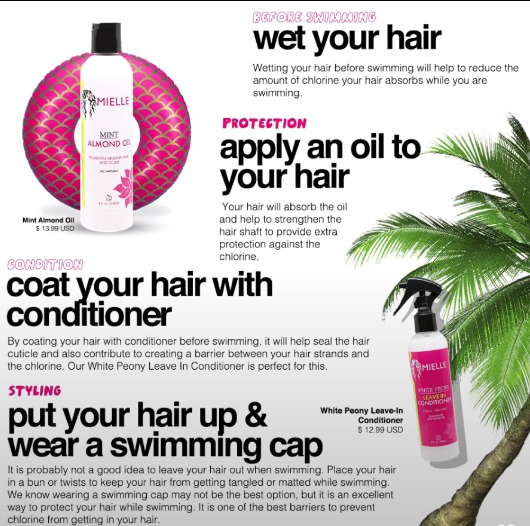
4. Rinse After Swimming
After your swim, rinse your hair thoroughly with fresh water as soon as possible. This helps remove any residual lake water, minerals, and pollutants. Use a mild sulfate-free shampoo to cleanse your hair gently, followed by a nourishing conditioner to restore moisture.
5. Condition and Deep Condition
Incorporate regular conditioning and deep conditioning treatments into your hair care routine. Conditioners help replenish lost moisture, while deep conditioning treatments can repair any damage caused by exposure to lake water.
6. Use a Clarifying Shampoo Occasionally
Consider using a clarifying shampoo once in a while to remove product buildup, minerals, and impurities from your hair. Be cautious not to use it too frequently, as it can strip your hair of its natural oils.
Side Effects Of Lake Water For Your Hair
Lake water, while enjoyable for recreational activities, can have some adverse effects on your hair. Here are some common side effects to be aware of:

1. Dryness and Brittleness
Lake water often contains minerals, such as calcium and magnesium, which can make your hair feel dry and brittle. These minerals can strip your hair of its natural oils, leaving it dehydrated and prone to breakage.
2. Discoloration
Lake water may contain pollutants, algae, or minerals that can cause discoloration in lighter hair shades. Blondes and those with color-treated hair may notice a greenish or brassy tint after swimming in certain lakes.
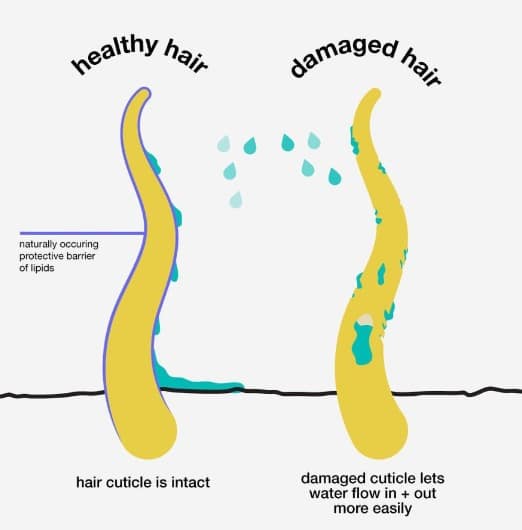
3. Frizz and Tangles
Hair exposed to lake water may become more prone to frizz and tangling. This can be particularly frustrating for those with naturally curly or wavy hair.
4. Scalp Irritation
Some lakes may have water conditions that irritate the scalp, potentially leading to itchiness or dryness. If you have a sensitive scalp, it’s essential to take precautions.
Related: How To Protect Color Treated Hair While Swimming
Is Lake Water Bad For Dandruff-Prone Hair?
Dandruff-prone individuals may wonder if swimming in lake water exacerbates their condition. While lake water alone may not directly cause dandruff, it can indirectly contribute to its worsening due to factors such as dryness and scalp irritation.
The minerals and pollutants in lake water can strip the scalp of its natural oils, leading to dryness and flakiness. If you already have dandruff, this dryness can make your condition more noticeable and uncomfortable. Additionally, lake water’s potential to irritate the scalp may worsen dandruff symptoms for some individuals.
To manage dandruff while enjoying the lake, consider the following:
– Apply an anti-dandruff shampoo or treatment before and after swimming.
– Use a swim cap to protect your scalp from direct contact with lake water.
– Rinse your hair and scalp thoroughly with fresh water after swimming and apply a moisturizing conditioner to combat dryness.
– Consult a dermatologist for personalized recommendations if your dandruff worsens.
Does Lake Water Ruin Dyed Hair?
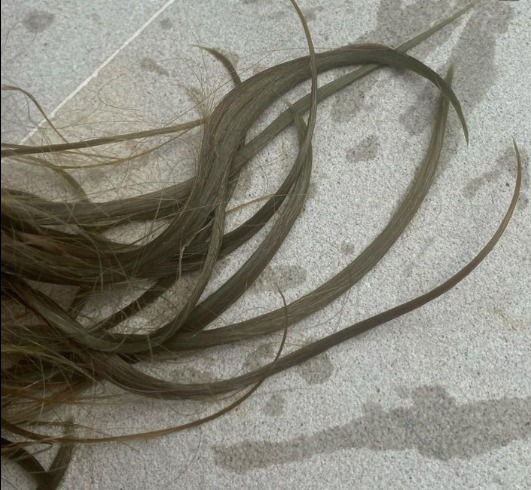
Dyed hair requires special care to maintain its color and vibrancy. Exposure to lake water can potentially affect colored hair, primarily through mineral deposits and fading. Here’s what you need to know:
1. Mineral Deposits:
Minerals present in lake water, such as iron, copper, and calcium, can accumulate on the hair shaft and cause discoloration or a brassy tint. This is particularly noticeable in lighter hair shades.
2. Fading:
Sun exposure and lake water can contribute to color fading. The combination of UV rays and minerals in the water can strip away color molecules from dyed hair, causing it to lose its vibrancy over time.
To protect dyed hair while enjoying the lake:
– Follow the tips mentioned earlier, such as wetting your hair before swimming and using a leave-in conditioner or hair oil to create a protective barrier.
– Wear a swim cap to shield your dyed hair from direct contact with lake water.
– Rinse your hair thoroughly with fresh water after swimming to remove any mineral deposits.
– Consider using hair products specifically designed for color-treated hair, as they can help preserve color and prevent fading.
– Limit sun exposure by wearing a hat or using a UV-protective hair product.
Related: Can You Go Swimming After Dyeing Your Hair Red
What To Use on Your Hair Before Going To Swim In A Lake
Certainly, here’s more detailed information on what to use on your hair before going swimming in a lake to help protect it:
1. Leave-In Conditioner:
– A leave-in conditioner is an excellent choice to apply before swimming. It forms a protective barrier on your hair, preventing lake water from penetrating the hair shaft.
– Look for a leave-in conditioner with UV protection to shield your hair from sun damage, especially if you plan to spend a lot of time in the sun.
2. Hair Oil:
– Hair oils, such as coconut oil, argan oil, or jojoba oil, can be applied before swimming to create a protective layer.
– These oils not only shield your hair from lake water but also help maintain moisture and prevent excessive dryness.
3. Swim-Specific Products:
– There are special swim-specific hair products designed to protect your hair from chlorine and other pool or lake water chemicals.
– These products often come in the form of sprays or leave-in treatments and are formulated to minimize the impact of harsh water conditions.
4. Wet Your Hair with Fresh Water:
– Wetting your hair with fresh, clean water before entering the lake is a valuable step. When your hair is already saturated with fresh water, it absorbs less lake water.
– This pre-soaking can help reduce the potential damage caused by minerals and pollutants present in the lake.
5. Protective Styles or Swim Caps:
– If you want maximum protection, consider wearing a swim cap. Swim caps effectively shield your hair from direct contact with lake water.
– Alternatively, you can braid, twist, or bun your hair into a protective style to minimize exposure.
6. Rinse and Condition After Swimming:
– After your swim, it’s crucial to rinse your hair thoroughly with fresh water as soon as possible to remove any residual lake water, minerals, and pollutants.
– Use a mild sulfate-free shampoo to cleanse your hair gently, followed by a nourishing conditioner to restore moisture and maintain its health.
By using these protective measures and products before heading into the lake, you can enjoy your swim while minimizing the potential damage to your hair from lake water. Remember to follow up with proper post-swim hair care to keep your locks healthy and beautiful.
Is River Water Good For Your Hair?
While we’ve explored the potential effects of lake water on hair, you might be wondering about river water. River water differs from lake water in several ways. It typically flows continuously and may have varying levels of pollution, minerals, and sediments.
River water can be less stagnant than lake water, which may make it less likely to accumulate pollutants. However, the quality of river water can vary greatly depending on location, upstream factors, and industrial activity in the area.
In general, river water is not necessarily “good” or “bad” for your hair; its impact depends on its specific composition. Some river water may be relatively clean and have minimal effects on your hair, while others may contain pollutants or minerals that can be detrimental.
To protect your hair when swimming in river water, consider the same precautions and tips mentioned earlier for lake water. Wet your hair before swimming, apply a protective barrier, and rinse your hair thoroughly with fresh water afterward.
Conclusion
Lake water can have both positive and negative effects, depending on various factors such as water quality, hair type, and hair care practices. While lake water can lead to dryness, discoloration, and other side effects, taking precautions like wetting your hair before swimming, using protective products, and rinsing thoroughly afterward can help mitigate these issues.
Why You Should Trust Haireveryday?
The author of this article, Leah Marie Priest has a degree in Cosmetology with years of experience in dealing with hair care, scalp care, and hairstyling. As someone who extensively deals with all kinds of hair textures, products, styling methods and more, hair Leah Marie knows what kind of products and procedures suit each hair type and person. We have also tested these hair products and processes ourselves to provide you an unbiased review about every product. Each of our articles are also reviewed by a team of medical professionals so that you get the most accurate and expert-reviewed information.
Also Read:
Best Leave-In Moisturizers For Swimmers
Is Using Hair Towel After Swimming Good
To Summarize



